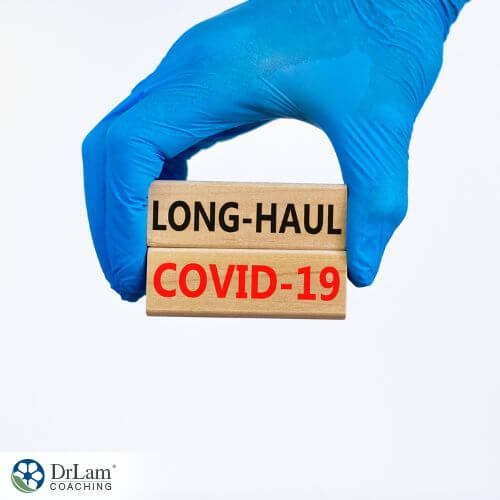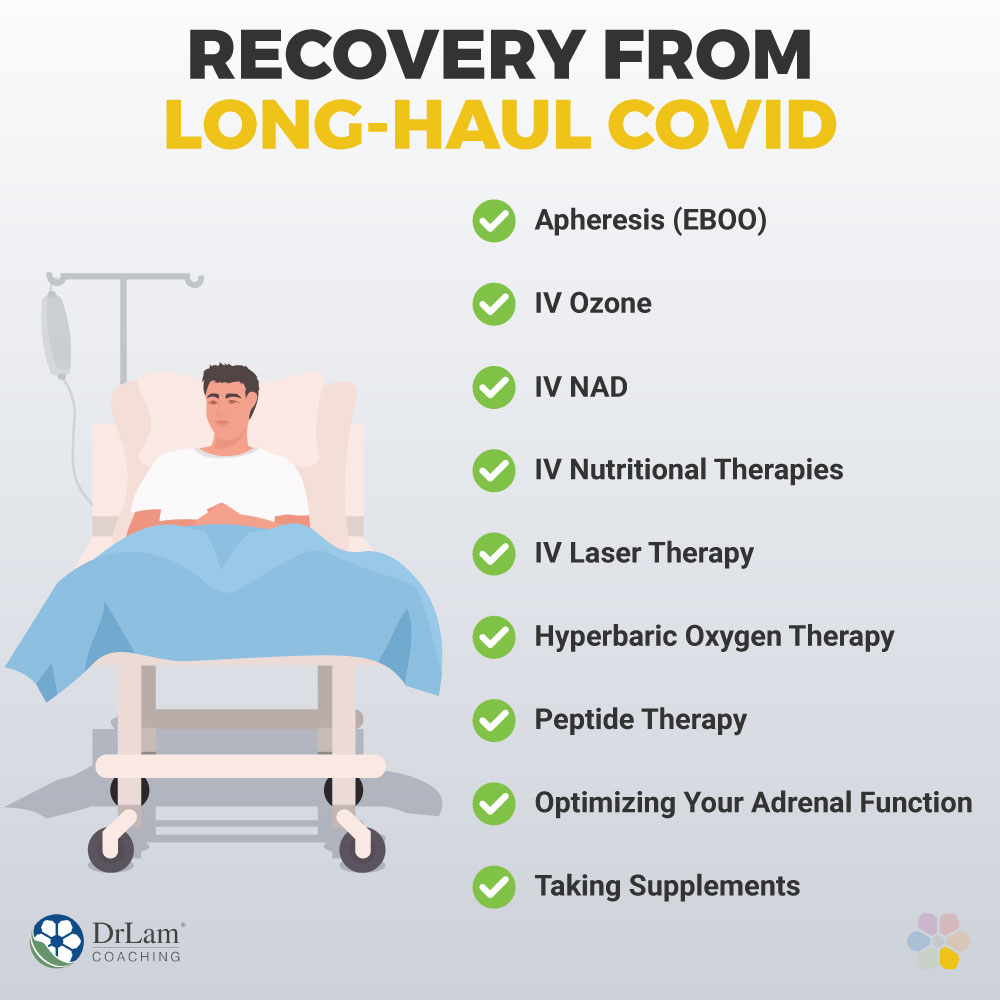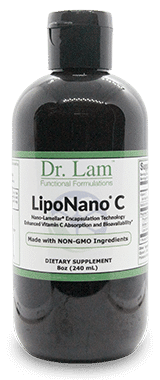Long-haul COVID is a relatively new condition that has been affecting the health of a large segment of the population. This condition still isn’t well understood, but as time goes on, medical researchers are getting a better idea of the causes and therapies that can help relieve it.
If you or a member of your family has experienced this consequence of a COVID infection, then you need to know how to manage it. At this stage, there’s little information on how to eliminate it, but there are things that you can do to minimize its effect on your life and your health over the long term.
So, let’s take a look at long-haul COVID and what therapies may help to alleviate the symptoms and issues associated with it.
 Long-haul COVID is estimated to affect around 20% of the people who catch the COVID-19 virus. This amount could be about 50% in those who are hospitalized with COVID. This condition can persist for a very long time and end up being worse than the COVID infection. It also presents differently depending on the person.
Long-haul COVID is estimated to affect around 20% of the people who catch the COVID-19 virus. This amount could be about 50% in those who are hospitalized with COVID. This condition can persist for a very long time and end up being worse than the COVID infection. It also presents differently depending on the person.
Some people get COVID and are fine for a while before coming down with symptoms months later. Others get sick with the virus and stay sick. The only commonality here is that the symptoms of this long-term COVID can last a long time, more than a year in some cases.
Long-haul COVID can cause more than 200 symptoms and affect almost every part of your body. Some of the symptoms you may experience that aren’t specially related to one organ or part of your body are:
However, this condition can also affect the health and functioning of specific organs and parts of your body, including:
The cause of long-haul COVID still is not understood, but one theory is that it may be the result of immune dysregulation or autoimmunity in some people. Other theories suggest COVID may trigger dysbiosis and gut problems. Another hypothesis is that COVID acts as a latent virus that can be retriggered, like chronic Lyme or Epstein-Barr, which can keep coming back time after time.
Another theory has to do with chronic inflammation, potentially due to viral remnants or the spike protein. The spike protein may inflame certain immune cells that patrol the veins and arteries of your body. This, then, brings inflammation into those veins and arteries, both the big blood vessels and the small ones. The bigger arteries tend to be less affected because they’re larger and can handle more inflammation. But tiny arteries, known as arterials, where your blood delivers fresh oxygen to your tissues and removes carbon dioxide, are also affected. When these arterials become inflamed the blood can’t flow. The oxygen and nutrients can’t get in and the wastes can’t get out. This can result in tissue damage and further inflammation in the organs.
Some researchers believe the symptoms of long-haul COVID are actually due to several conditions that have all been bundled together. At this time, more research is needed before any cause can come to the forefront.
 Recovery from long-haul COVID is a long and often difficult process. It’s important that you see your doctor if you believe that you have this condition, as it could be difficult to overcome it on your own. However, there are medical options that can help lower your body’s inflammation levels and repair the cell damage done by the rampant inflammation. Some of the most effective therapies and strategies for this are:
Recovery from long-haul COVID is a long and often difficult process. It’s important that you see your doctor if you believe that you have this condition, as it could be difficult to overcome it on your own. However, there are medical options that can help lower your body’s inflammation levels and repair the cell damage done by the rampant inflammation. Some of the most effective therapies and strategies for this are:
EBOO or extracorporeal blood oxygenation and ozonation is a way of getting delivering oxygen and ozone in a highly efficient manner to the blood. It’s a new therapy that practitioners use for long-term infections and inflammation.
When you experience these kinds of conditions, your blood becomes overwhelmed with toxins. In these cases, these toxins usually consist of debris from the virus as well as from destroyed or damaged tissues. Your body can’t heal when these toxins build up and overwhelm its natural detoxification processes. EBOO is an effective answer to this.
In EBOO therapy, the blood is removed from the body via an IV in one arm, cleansed and ozonated, and then returned to the body through an IV in the other arm. You’ll usually start feeling the benefits of EBOO therapy after the first session but may need additional sessions to get lasting results.
IV ozone can be given through EBOO therapy or on its own and has some positive effects on the mitochondria of your cells. Mitochondria are organelles in your cells that produce ATP, a chemical that gives your cells the energy they need to function.
When you have chronic inflammation, your mitochondria can start to malfunction and even die. Ozone not only stimulates your mitochondria, so they produce more energy, but it also encourages your body to produce more of them.
NAD, or Nicotinamide Adenine Dinucleotide, is a molecule that’s essential for life and mitochondrial function. NAD+, which is the oxidated form of the molecule, takes electrons from food and gives them to your mitochondria, to be used as energy.
This molecule is often used to help address chronic fatigue as well as for general energy. So if your mitochondria are dysfunctional because of COVID or if your energy is generally low, taking this molecule via IV can give you a much-needed boost of energy.
IV nutritional therapies involve getting the nutrients that you need through an IV drip. These infusions were made popular in the 1970s. The process involves administering a high concentration of essential vitamins and minerals through an IV.
When you take in vitamins by mouth, the vitamins are broken down in the stomach and digestive tract. This leads to a low absorption of these nutrients. However, when the same nutrients are given by IV. A practitioner can give you almost any nutrient combination that you need through this method, and it’s often used with chronic illnesses or with people who can’t eat.
If you’re struggling with poor health because of COVID, then this may be a good way to give your body a boost of all the nutrients that it needs to heal and function. However, there isn’t a lot of evidence supporting this idea, so talk to your doctor before investing in it.
 With IV laser therapy, your blood is exposed to low levels of laser radiation. To perform this therapy, a practitioner inserts an optical fiber intravenous catheter into a peripheral vein in the hand or forearm. They then deliver a laser light through this cable.
With IV laser therapy, your blood is exposed to low levels of laser radiation. To perform this therapy, a practitioner inserts an optical fiber intravenous catheter into a peripheral vein in the hand or forearm. They then deliver a laser light through this cable.
Proponents of IV laser therapy claim that it has a number of benefits for your body and your health. Using red laser light in particular may be useful for long-haul COVID recovery as it stimulates ATP production. Increases in ATP production help increase your energy levels, improve circulation, and may even boost your immune response. IV laser therapy may also help decrease inflammation levels, which may be very helpful when you’re struggling with long-term COVID.
In hyperbaric oxygen therapy, you get into a pressurized chamber and breathe pure oxygen. This encourages the oxygen to dissolve into all of your body’s fluids, including the fluid in your:
This causes extreme oxygen saturation in every cell and every organ. This is important because the damage caused by long-haul COVID can result in oxygen deprivation. This type of therapy basically forces more oxygen into your tissues, helping to reverse some of this damage. This will also encourage better mitochondrial function.
Peptides are composed of amino acids and are the building blocks of proteins. There are more than 7000 peptides in the body, and they perform a number of essential functions. Your body naturally produces peptides, but age and individual differences can greatly affect their production.
In peptide therapy, a practitioner will directly inject peptides into the bloodstream, or they can be taken in oral, nasal spray, or topical forms. Peptide therapy can be tailored to specific body needs and individual circumstances. However, when you have symptoms of long-haul COVID, the peptides Thymosin alpha 1 (TA1) and Thymosin Beta 4 (TB4) would be the most helpful. Both of these peptides have important roles in supporting healthy immune function.
Poor adrenal function is linked to low energy, brain fog, lowered immunity, and impaired cognitive function. COVID is also a stressor that can degrade adrenal health. So optimizing your adrenal function can be very helpful when you experience long-haul COVID. Some strategies for doing this are:
You can also try taking supplements that support healthy adrenal function. However, make sure that you talk to your doctor first to ensure that any supplements are right for your body and won’t cause additional health issues. The best supplements for healthy adrenal glands are:
 You should always try to get all the nutrients you need from the food you eat. This helps ensure that you get essential nutrients in healthy combinations and in amounts that your body can handle. It also helps you to avoid additives and fillers that are often put in supplements and can cause reactions.
You should always try to get all the nutrients you need from the food you eat. This helps ensure that you get essential nutrients in healthy combinations and in amounts that your body can handle. It also helps you to avoid additives and fillers that are often put in supplements and can cause reactions.
However, if you’re struggling to get the nutrients that you need to recover from long-haul COVID issues, then it’s worth talking to someone about supplements. Some of the most helpful supplements when you experience this condition are:

Long-haul COVID can look very similar to adrenal fatigue as well as other conditions like chronic fatigue syndrome because of the low energy and the adrenal drain that occurs with long-term illnesses.
Your adrenal glands are part of the NeuroEndoMetabolic (NEM) stress response. When you’re stressed, the NEM stress response turns on and prompts the release of cortisol from the adrenals. Cortisol then spreads throughout your body, making changes in the body’s circuits that help protect you from damage and prepare your body to respond in the appropriate ways to stress.
Unfortunately, the NEM stress response can cause issues when it’s active continually, including Adrenal Fatigue Syndrome (AFS). The resulting high demand for cortisol can cause the adrenal glands to become overworked and fatigued. The body’s circuits, six sets of related organ systems, can also become unbalanced as the high cortisol levels force them to remain in overdrive. These circuits can then become dysfunctional, causing a range of symptoms that involve almost every part of your body.
Illnesses and conditions like long-haul COVID can be a key cause of stress that overwhelms the adrenal glands, bringing on or exacerbating AFS. The immune dysfunction that occurs when you have AFS may also make you more likely to develop conditions like long-haul COVID. These kinds of dysfunctions occur because of dysfunctions in the Inflammation Circuit.
You will need to be very careful when you’re adopting strategies for long-haul COVID when you also have AFS. AFS can make your body very sensitive to changes, even those that are meant to benefit your health. Making lifestyle changes when you’re in this condition can be a source of added stress, which may worsen your AFS.
This is why you need to make any changes gently and slowly and with the help of someone who’s aware of AFS if at all possible. This will ensure that you make the right changes and in a way that benefits your health rather than hurting it.
Your Inflammation Circuit is part of your body’s defense system. It’s this circuit that causes inflammation, helping to expel invaders like viruses and bacteria. The Inflammation Circuit includes three components: the gut, the microbiome, and the immune system. Problems here can result in chronic inflammation and a range of problems, from food sensitivities to autoimmune conditions. Here’s how each component of this circuit can contribute to poor health when you have AFS:
In AFS, gut permeability can increase, causing the release of foods and other toxins back into the bloodstream. You’re also more likely to experience constipation or diarrhea as gut problems increase, which increases toxin levels as well as pain and discomfort. Many inflammatory diseases also start in the gut, and as permeability increases, these can then spread to other parts of the body.
 The microbiome is the balance of bacteria in your body. In AFS, the chronic inflammation, high stress levels, and other factors associated with AFS can cause dysbiosis. This is an imbalance in the bacteria in your body that allows the bad bacteria to overwhelm and even overgrow the good. This can result in ongoing infections, worsen a leaky gut, and result in additional inflammation.
The microbiome is the balance of bacteria in your body. In AFS, the chronic inflammation, high stress levels, and other factors associated with AFS can cause dysbiosis. This is an imbalance in the bacteria in your body that allows the bad bacteria to overwhelm and even overgrow the good. This can result in ongoing infections, worsen a leaky gut, and result in additional inflammation.
In AFS, the immune system can become overactive as it tries to respond to a myriad of threats, such as leaky gut or latent virus infections. This causes chronic inflammation, and it can also result in autoimmune conditions, sensitivities, and paradoxical reactions.
Malfunctions in the Inflammation Circuit could be a factor in the development or exacerbation of long-haul COVID. The opposite is also the case. If you’re already in a fragile state, then a COVID infection causes additional stress. This may overwhelm your adrenal glands and cause or worsen AFS.
This is why it’s so important that you seek out experienced medical help for these conditions. One of the keys to recovery from AFS is to restore good adrenal function. This may help long-haul COVID as well.
To do this you will need to work with a medical practitioner who’s aware of the dangers of poor adrenal function and the effects it can have on your body. They will also need to work with you to correct underlying issues in the body’s circuits, including the Inflammation Circuit, to reduce inflammation levels and may help alleviate lingering symptoms after COVID.
COVID-19 has had a huge impact around the world, and the changes brought about by this condition are still being discovered. Long-haul COVID is an unexpected but serious side effect of this virus. While it may have one or several yet-to-be-determined causes, supporting your overall health and reducing stress levels may help control some symptoms.
If you’re still suffering symptoms of COVID-19 after a long period or if your symptoms come back after you’ve recovered, then you shouldn’t ignore it. Here’s what to do instead:
For more information and guidance on alternative therapies for long-haul COVID or AFS, talk to our team at +1 (626) 571-1234 or click here.

LipoNano C: Strengthen Against Long-Haul COVID
Long-haul COVID is a chronic condition that can have a serious effect on your health and quality of life. It comes with symptoms for several organs and body systems. This condition may occur in 20% of people who have had COVID and more among those who were hospitalized. And we still don't know the cause.